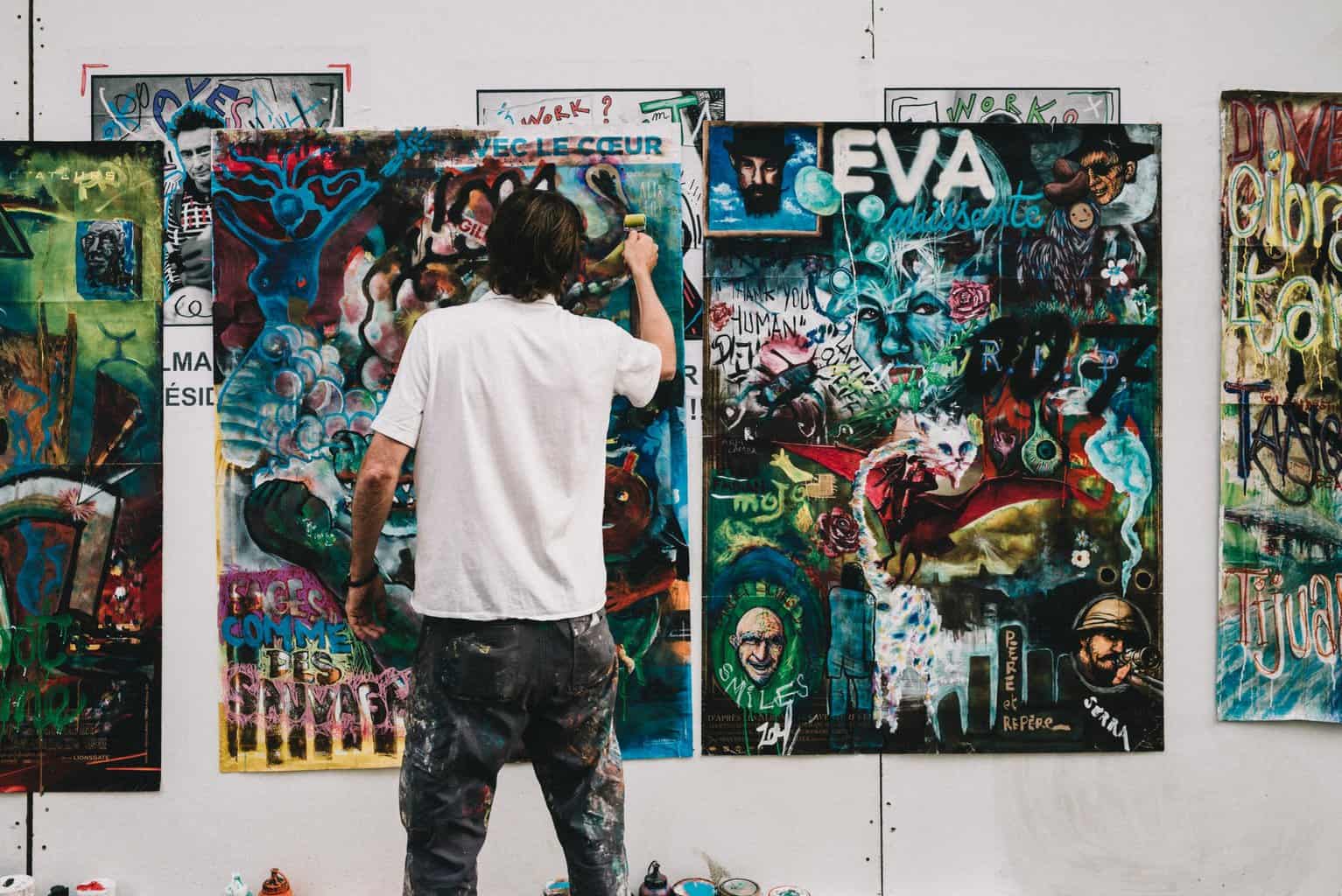Commissioning an artist for graphics? How to do it the right way

There are lots of reasons why an affiliate or a brand might need a graphic designer or even an artist. For the simple stuff, it really stands out as a brand when all your colours and graphics coordinate on all your social media. Something about it really says that you know what you’re doing and are therefore reliable. On the other end of the spectrum, you might have merchandise. It depends on your brand and what you’re selling what kind of graphics you have for your merchandise, but in such an oversaturated market of hoodies and posters, it pays to stand out, and for that, you might need to hire a creative.
Artists commissioning on social media to create works of art for the sake of your brand is nothing new. If you stick “artist” on Twitter, you might come across a few bios that say, “commissions open”. Much like editing and moderating, it’s one of the background work elements that need doing but the influencer or brand owners don’t have the time or relevant skills to complete in-house. So, it gets outsourced.
But it’s very easy to get this relationship wrong. After all, we’re not all adept at hiring artists for their work. It’s not as common as it might have been amongst history’s aristocrats. So, how do you do it right and avoid scammers, get what you want, and pay a fair price?
Set realistic budgets
Too many people in this world expect to pay with “exposure”. These people are influencers. They know how to gain exposure without your help. They don’t need exposure; it doesn’t pay the rent.
That being said, even if you don’t expect to hand over a rolled-up wad of exposure to an online artist, you might be a little lost as to what is a fair wage. Most artists are not looking to scam you. They have set their wage based on the hours they will spend on your work, so take them at their word. You can lowball them a little bit, but if the job’s not worth their time they will not take it.
Don’t be a nightmare client
Have you ever sat down to a restaurant meal and realised it’s got, say, mushrooms in it when you asked for no mushrooms? Perfectly reasonable to then ask to take the meal back. If it comes back and you take another look and realise you don’t fancy mashed potatoes, you’d rather have wedges, there might be a huff from the waitress but she’ll ask. If you then get your wedges and you then decide the steak would be better as a lobster, do you see how you might be pushing your luck?
Give feedback, yes, but it’s best to get everything upfront and don’t nitpick every little thing. Avoid offending and settling for something you don’t like by being specific upfront. Don’t ask for “80’s style” because that’s too broad. Are we talking New Wave or Madonna? Does “neon” mean lime green and pink or something that would be at home on Blade Runner?
And that’s another point: add examples. Film posters, album art, tv shots, and anything else you can see that is what you’re looking for can all be collected on a mood board. Point out what you like about each of the pieces and the artist will gauge what you want from that.
Don’t ask for something the artist can’t deliver
These artists aren’t struggling as much as you think. That is to say that if they can’t do something you’re looking for and it’s significant, they will just tell you “No” and move on to the next client.
What can’t they do? Well, you should stop thinking of artists as a hairdresser and more of a tattoo artist. A hairdresser, you sit in front of and you ask for a style and they are trained to cut your hair into almost any style you can present them with. A tattoo artist is using you as a canvas. You dictate the subject but they can only offer the style that their hand can do. They’re not a Jack of all trades but a master of one, and if you don’t like their style, you need to look elsewhere. An artist commission should be approached with the expectation that you’ve looked at their style and you like it and you would like it applied to your work.
Credit the artist
And, like anything else on the internet, reposting, curated content, user-generated content, etc., credit the artist.
If you’re interested in gathering some more affiliate and social media marketing insights, take a look at our blog, or for a more personalised approach, book a free call with a member of our team.
Or, for advice that comes from industry peers at the top of their careers, take a look at the content from our Elevate Summit. Over 14 hours of content are available featuring advice from talks, panels, and workshops for you to gain all the best advice.






